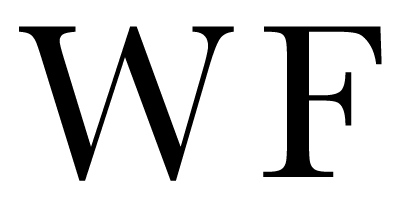‘The Last Stand’ Preface: We Must Change
With William’s first book, The Last Stand, for sale online from Friday 17th, here’s an extract from the preface; ‘We Must Change’, William’s commentary on the language used around the climate change and why it does not help.
We Must Change
In the narrative surrounding the climate crisis, I am hesitant about the use of the word we. Too often I hear, “We have destroyed that”, “We have burned down this”, “We have broken the system”.
To me though, we have not.
We implies two things: firstly, that each of us is equally responsible and must therefore take equal blame; and secondly, perhaps most importantly, we have done so intentionally.
The implications of this language, I believe, have a counterproductive effect, albeit unintentional. While perhaps it is intended to inspire change through guilt, I fear all it achieves is to invoke despair.
If we are all responsible for the intentional destruction of the planet, how can we be expected to fix it?
I am not attempting to absolve us all entirely from blame, or claim total innocence; that would be naïve in the face of the consequences.
The largest mass extinction in 65 million years looms ever nearer. Vital Arctic ice is melting four times faster than previously estimated, and wild space for wild animals shrinks by the day as it loses out to a combination of rapidly growing human populations and land annexed for domestic livestock to feed those populations.
All of which, I frequently hear, we have done, and consequentially must put right.
My concern is that guilt rarely inspires change. But hope does.
As I write this, for once not on the road but at my desk in London, I consider some of the major events of the last 24 months, each of which flew past while appearing to last an eternity.
Covid-19, the Ukraine war, a cost of living crisis, a global fuel crisis. Each a once-in-a-generation event, but with only months, sometimes just days, separating them.
The language around each of these has been wildly different to that used about the climate crisis, and crucially, happily, so has the response.
Not once when I have heard the causes of these events being discussed has the word we been used, because we have not been responsible. The circumstances and origins of each are, admittedly, fundamentally different. Yet the ramifications of each event have been felt just as widely as those of the climate crisis have been, and will continue to be.
The response to the first waves of Covid showed what a united global effort could achieve in the face of a crisis. Governments took drastic measures and we, in the knowledge they were made with our safety as a priority, supported them.
When Russian troops crossed the border into Ukraine, the response went far past government measures. Hundreds of companies took a stand but, more interestingly to me, so did thousands of individuals. Refugees were offered homes, and people queued to donate vital supplies, convoys of which were driven across Europe by multitudes just wanting to ‘do their bit’. The list of good people doing good deeds was endless. The finest facets of human nature were on display for the world to see, standing tall against the very worst.
I do not put this response purely down to the language used. These threats were omnipresent aspects of our everyday life, our response was natural for that of an inherently social, caring species.
I do not believe that to be a coincidence. People helped because they felt moved to. Not through guilt, such as I believe the unintentionally fatalistic use of the word we can invoke, but because of love. Because of care. Because people knew that if they did not help, others would continue to suffer.
This has to be how we all view and, importantly, discuss the climate crisis.
It must be tackled neither because of guilt nor through obligation, but for love.
I am a firm believer that each of us is born with a deep, intrinsic love for nature which underpins our very existence, for we are as much a part of nature as it is of us. And its future relies on our response.
There must be no search for a we to point the finger at, to blame for how we got here. Instead, we need a collective push for systemic change: changes in how governments act, how companies operate, how people live and, crucially, how everyone cares.
That is what I want this book to be: a reason to care.
The following pages are filled with images of some of the planet’s most iconic species from elephants to gorillas, and from rhinos to lions. With the odd, rare exception, every species’ population is declining in number. If nothing is done, if no changes are made, then by 2040 there could be more elephants in this book than are alive in the wild.
This cannot be allowed to happen.
Hope, positivity and a reason to care are our most important weapons in this crisis for, make no mistake, that is what we face.
That is how all of us must face this. Collectively, at the final frontier we can make the last stand.




